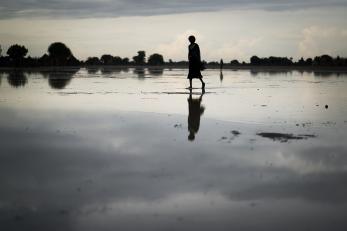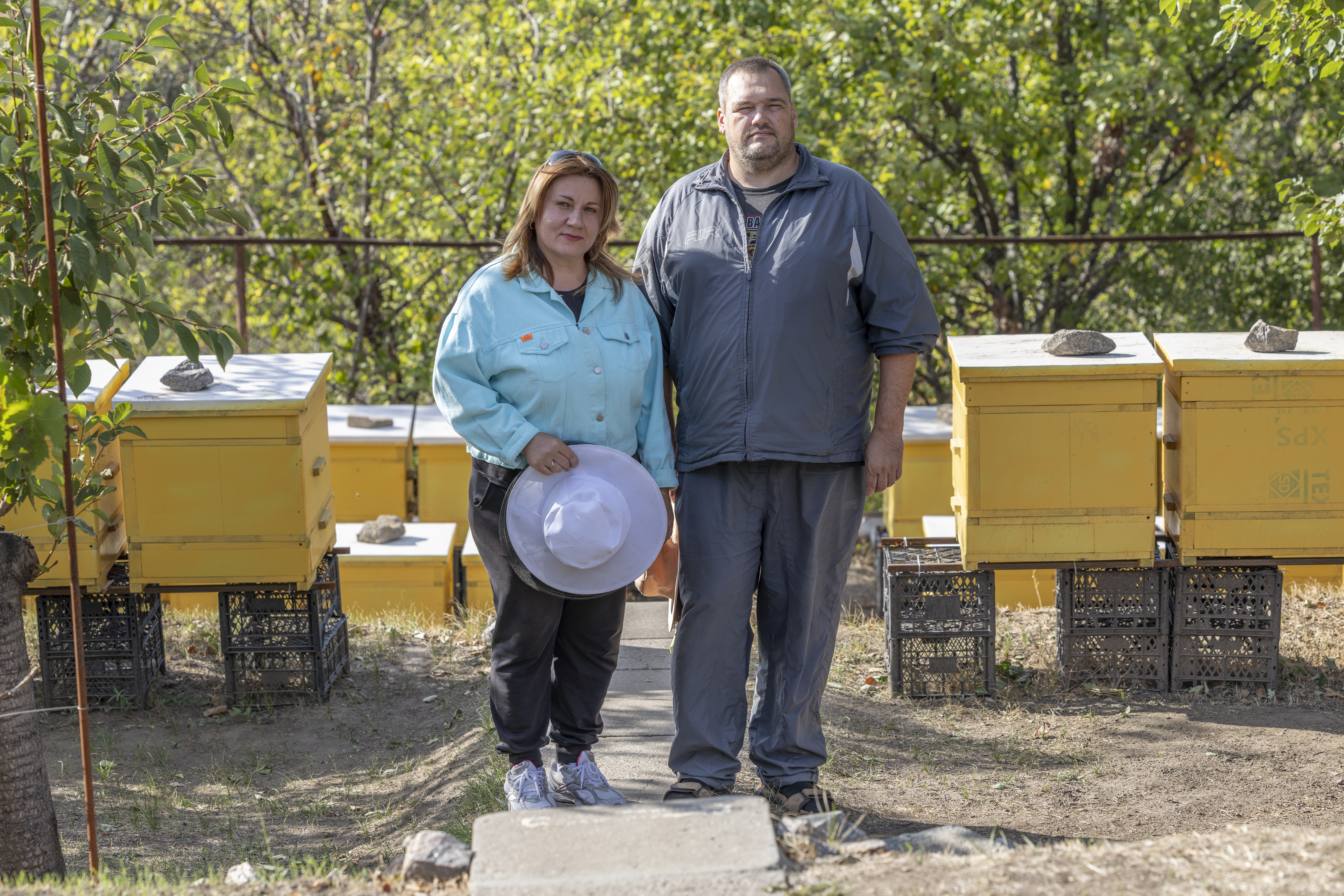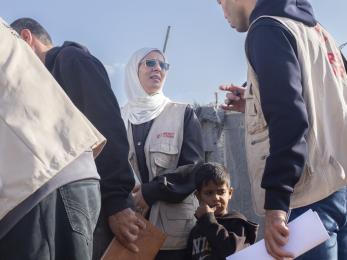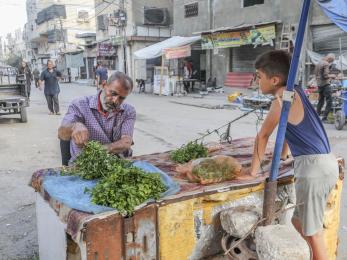Escape to safety: One staff member's journey

When fighting erupted in Bentiu one year ago, more than 400,000 people ran from the violence in just the first month. Mercy Corps staff, most of whom are from South Sudan, were among those forced to flee — leaving their homes and the office behind. Just like their neighbors and friends, many Mercy Corps team members have been victims of this war.
They’ve had to escape horrible violence, find safety for their children, and scavenge for food along the way. Their stories remind us that for each day that this conflict continues, more families are pushed from their homes and face dangerous journeys just to survive.
Reports of new clashes between government and rebel forces in South Sudan's Unity and Upper Nile states are an unfortunate sign that the brutal conflict is far from over.
The world's youngest nation has another tough year ahead ▸
Despite experiencing the trauma of war, many of our staff have found their way back to Mercy Corps, eager to work again and help their country.
Thomas*, a young father and citizen of South Sudan, had no choice but to take his family and run when the violence first began. Here, he tells his harrowing story of traveling all the way to a small village in search of safety.
“I was in Bentiu when fighting started in December 2013. I was in the Mercy Corps office in the evening working late when we were notified that there may be fighting in Bentiu. We all left the office and went home, taking as many important documents and office laptops as we could to keep them safe in case of looting. We stayed in our homes and did not go out.
In January the Mercy Corps office in Juba called us to notify us that Bentiu was no longer safe, even if we stayed inside. We were told to leave Bentiu, so we all prepared ourselves as best we could. We left Bentiu on foot with our families and whatever we could carry.
We walked to Leer, another town in the area — it took two days to get there. I was carrying my Mercy Corps office laptop, my smallest daughter and some food for the journey. The Mercy Corps laptop had important documents on it, so I knew I had to keep it safe.
We reached Leer, exhausted and hungry, but everyone was safe and in good condition considering the situation. We stayed for a couple of weeks, living in a tent on some empty land. But then the fighting started in Leer, so we had to leave again.
This time we headed for the town where my parents live. It took us three weeks of walking to reach the town. We had to go through the forests and bush, not on the roads, because there were soldiers and thieves who would attack us if we traveled by the main roads.
Traveling with my children was very hard and our progress was slow. We didn’t have any food so we begged for food along the way. I had my young daughter strapped to my back and my Mercy Corps laptop strapped across my chest during the long journey.
My wife suffered so much, as she was carrying sleeping mats and helping our other children. It was a very difficult journey, but somehow we stayed strong and made it to safety — and with the Mercy Corps laptop safe, too.
When we reached the village there was no shelter, no mosquito netting, no sanitation and most people collected their daily water from the surrounding swamps. Above all, there was no food. When we arrived we saw families scavenging palm nuts from the trees just to have something to eat.
We were lucky because my parents lived there, and we were able to move into an old “tukul” [traditional grass hut], but the rainy season made it very hard as the roof leaked and the ground was a muddy swamp much of the time. My children were very sick from the bad living conditions.
In the beginning, when the fighting started, all the routes to the town were cut off by the fighting, so very little food or medicine was available. If you could find food, it was too expensive for anyone to be able to buy it. Even with my good job with Mercy Corps we were struggling. For most of the others without any way to earn income, it was very, very bad.
Some people had cattle that they could slaughter, but they were the lucky ones. By the river Nile, you could see people collecting plants and trying to catch food so they could eat. But things have gotten better now with food assistance and Mercy Corps programmes.
Now, I am working with Mercy Corps in a small, remote village. We set-up an office here to respond to the crisis and we have been distributing seeds and tools for farming so people can start to grow their crops.
We are also developing new programmes to help restart the markets and trade in the area so that more food is available and prices will be lower. But violence makes everything difficult. There is no fighting here right now, but there has been violence in other areas.
There is no phone network so it is hard to get information. We have to spend a lot of time walking to remote villages to gather information so we can help people. You have to walk to get anything done, so it takes time and stamina.
I cannot even describe the situation in Bentiu now. I have not been back, but I met some neighbours who also escaped recently and they told me that my house and entire neighbourhood had all been burned down.
I want to go back to support my community in Bentiu but I want to stop running all the time. The situation must improve before I go back and take my family home again.”
*Thomas’ name has been changed to protect his identity.


